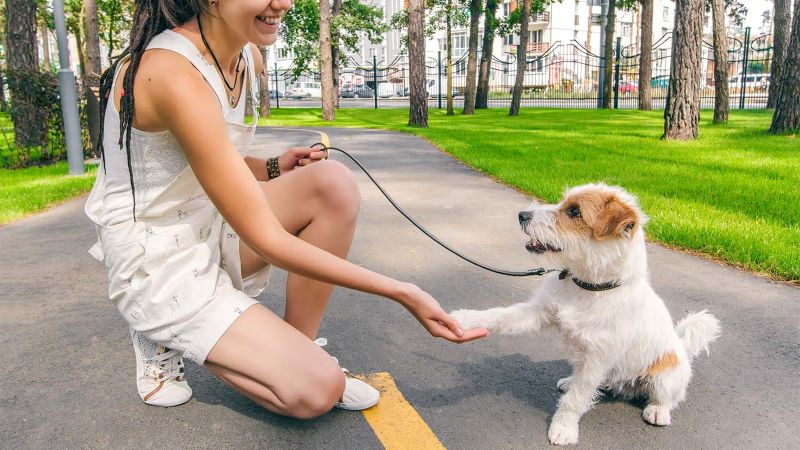Last January we shared why it is important to train your dog in our post, Top Five Reasons to Train Your Dog. Now, let’s talk tips on how to go about training.
Start training your young dog
According to Dog 101: How to Train Your Dog, it was once thought that one should wait to begin obedience class until the full series of vaccinations was received. Now the thinking is that the benefit of socialization during this important developmental time in puppyhood far outweighs the risk of illness. By enrolling your puppy in obedience classes, he will have the opportunity to learn from others in a group setting.
Use treats for training
It is important to figure out what motivates your pup. As Lisa Radosta, DVM says, “If you want to train your dog effectively, you have to find his ‘currency.’” For some dogs, it is food that’s their driving force. Drew Webster, CPDT-KA, agrees that using food to encourage good behavior strengthens your relationship with your dog and is very effective. According to Webster, smell is one of the most important senses to your dog, and owners can use their dog’s sense of smell to help make connections between right behaviors and rewards. In his blog post, Is Using Food for Training Simply a Bribe, Webster states, “Dogs that get food for rewards during training get excited about being asked to do things and the whole process becomes rewarding.”
Be consistent
This is number one on PetMD’s blog post, Tips for Basic Obedience Training. Decide what commands you will use, stick to those commands, and make sure everyone who comes into contact with your dog uses the same words. Consistency is key when training your dog.
Praise, praise, praise
In the midst of your training, don’t forget to praise your dog as well. PetMD’s article, Training Tips to Strengthen Your Bond With Your Dog, suggests you can praise your dog throughout the day, for any correct behaviors they exhibit. Dogs love to be spoken to with kindness and warmth, and will want to continue behaviors for which you praise them. Start by giving praise for going potty in the correct spot, waiting patiently while you fill his food bowl and not barking at a neighbor. Once it becomes a habit to praise your dog for right behaviors, it will become second nature, and you’re bound to see some positive changes in behavior.
Use discipline, not cruelty
Be kind. Never shame or use force to correct your dog. Saying a firm “no,” and being consistent should do the trick. If your dog is craving attention and acting out, remember that even negative attention is attention. Try ignoring your puppy or dog. PetMD’s Top Ten Ways to Train Your New Puppy reminds us that, “by simply ignoring the puppy [or dog], you are showing him that he is behaving unacceptably and won’t get attention from you.”
And one final tip...never underestimate the power of exercise. Your dog will sleep better, behave better, and feel better if he gets outside for some fresh air and gets that blood pumping. Read our post, How to Exercise Your Dog When It’s Cold Outside for tips on making exercise happen, even when you just want to curl up in front of the fire. While training can help reduce the chance of your dog getting hurt, even the best trained dog can find himself in trouble. Enroll your dog in pet insurance to be sure you can afford the best veterinary treatment for your dog!

